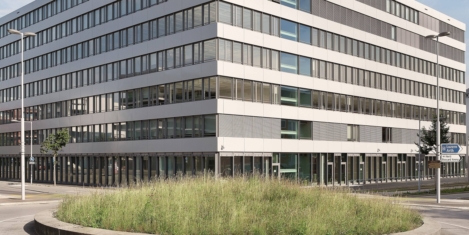To provide the best experiences, we use technologies like cookies to store and/or access device information. Consenting to these technologies will allow us to process data such as browsing behaviour or unique IDs on this site. Not consenting or withdrawing consent, may adversely affect certain features and functions.
The technical storage or access is strictly necessary for the legitimate purpose of enabling the use of a specific service explicitly requested by the subscriber or user, or for the sole purpose of carrying out the transmission of a communication over an electronic communications network.
The technical storage or access is necessary for the legitimate purpose of storing preferences that are not requested by the subscriber or user.
The technical storage or access that is used exclusively for statistical purposes.
The technical storage or access that is used exclusively for anonymous statistical purposes. Without a subpoena, voluntary compliance on the part of your Internet Service Provider, or additional records from a third party, information stored or retrieved for this purpose alone cannot usually be used to identify you.
The technical storage or access is required to create user profiles to send advertising, or to track the user on a website or across several websites for similar marketing purposes.
 Surface Design Show hosts over 150 exhibitors highlighting the very best in exterior and interior surface design from 5 – 7 February. Taking place at London’s Business Design Centre, the show provides a platform for architects, designers and specifiers to explore interior and exterior surface materials, lighting design, development and innovation. Visitors will uncover thousands of new materials from the latest technological advances in building materials to innovative workplace surfaces and everything in between.
Surface Design Show hosts over 150 exhibitors highlighting the very best in exterior and interior surface design from 5 – 7 February. Taking place at London’s Business Design Centre, the show provides a platform for architects, designers and specifiers to explore interior and exterior surface materials, lighting design, development and innovation. Visitors will uncover thousands of new materials from the latest technological advances in building materials to innovative workplace surfaces and everything in between.












 The two most important barriers to working for those in their 50s and early to mid-60s are health and caring; according to the latest analysis from the ONS.
The two most important barriers to working for those in their 50s and early to mid-60s are health and caring; according to the latest analysis from the ONS. 






 Almost half (49 percent) of UK employees admit they speak to colleagues about health concerns before sharing it with a partner or loved one, claims new research by Bupa Health Clinics. Stress, sleep, anxiety and weight problems are among the main concerns being discussed by employees at work, before confiding in those closest to home. The new report found that 46 percent of employees prefer to talk about health with a colleague over a loved one. Many do so with good intentions with more than a third finding it easier to talk to a colleague as they are less likely to worry.
Almost half (49 percent) of UK employees admit they speak to colleagues about health concerns before sharing it with a partner or loved one, claims new research by Bupa Health Clinics. Stress, sleep, anxiety and weight problems are among the main concerns being discussed by employees at work, before confiding in those closest to home. The new report found that 46 percent of employees prefer to talk about health with a colleague over a loved one. Many do so with good intentions with more than a third finding it easier to talk to a colleague as they are less likely to worry.











January 9, 2019
Digital transformation and an uncharted future for workplace design in 2019
by Cherie Johnson and Julie Yonehara • Comment, Technology, Workplace design